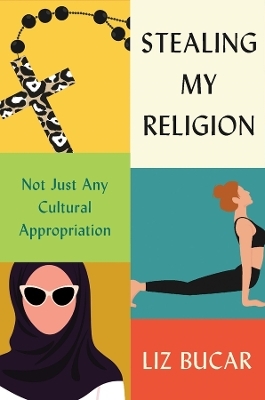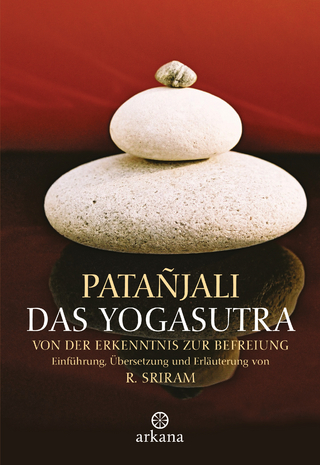
Stealing My Religion
Not Just Any Cultural Appropriation
Seiten
2022
Harvard University Press (Verlag)
978-0-674-98703-6 (ISBN)
Harvard University Press (Verlag)
978-0-674-98703-6 (ISBN)
Liz Bucar navigates the thorny terrain of religious appropriation, from yoga classes to non-Muslims who signal allyship by donning hijabs. Exploring the ethics of alleged appropriations, Bucar argues that borrowing isn’t itself a problem, as long as we are invested in our enthusiasms—committed to understanding their roots and diverse meanings.
From sneaker ads and the “solidarity hijab” to yoga classes and secular hikes along the Camino de Santiago pilgrimage route, the essential guide to the murky ethics of religious appropriation.
We think we know cultural appropriation when we see it. Blackface or Native American headdresses as Halloween costumes—these clearly give offense. But what about Cardi B posing as the Hindu goddess Durga in a Reebok ad, AA’s twelve-step invocation of God, or the earnest namaste you utter at the end of yoga class?
Liz Bucar unpacks the ethical dilemmas of a messy form of cultural appropriation: the borrowing of religious doctrines, rituals, and dress for political, economic, and therapeutic reasons. Does borrowing from another’s religion harm believers? Who can consent to such borrowings? Bucar sees religion as an especially vexing arena for appropriation debates because faiths overlap and imitate each other and because diversity within religious groups scrambles our sense of who is an insider and who is not. Indeed, if we are to understand why some appropriations are insulting and others benign, we have to ask difficult philosophical questions about what religions really are.
Stealing My Religion guides us through three revealing case studies—the hijab as a feminist signal of Muslim allyship, a study abroad “pilgrimage” on the Camino de Santiago, and the commodification of yoga in the West. We see why the Vatican can’t grant Rihanna permission to dress up as the pope, yet it’s still okay to roll out our yoga mats. Reflecting on her own missteps, Bucar comes to a surprising conclusion: the way to avoid religious appropriation isn’t to borrow less but to borrow more—to become deeply invested in learning the roots and diverse meanings of our enthusiasms.
From sneaker ads and the “solidarity hijab” to yoga classes and secular hikes along the Camino de Santiago pilgrimage route, the essential guide to the murky ethics of religious appropriation.
We think we know cultural appropriation when we see it. Blackface or Native American headdresses as Halloween costumes—these clearly give offense. But what about Cardi B posing as the Hindu goddess Durga in a Reebok ad, AA’s twelve-step invocation of God, or the earnest namaste you utter at the end of yoga class?
Liz Bucar unpacks the ethical dilemmas of a messy form of cultural appropriation: the borrowing of religious doctrines, rituals, and dress for political, economic, and therapeutic reasons. Does borrowing from another’s religion harm believers? Who can consent to such borrowings? Bucar sees religion as an especially vexing arena for appropriation debates because faiths overlap and imitate each other and because diversity within religious groups scrambles our sense of who is an insider and who is not. Indeed, if we are to understand why some appropriations are insulting and others benign, we have to ask difficult philosophical questions about what religions really are.
Stealing My Religion guides us through three revealing case studies—the hijab as a feminist signal of Muslim allyship, a study abroad “pilgrimage” on the Camino de Santiago, and the commodification of yoga in the West. We see why the Vatican can’t grant Rihanna permission to dress up as the pope, yet it’s still okay to roll out our yoga mats. Reflecting on her own missteps, Bucar comes to a surprising conclusion: the way to avoid religious appropriation isn’t to borrow less but to borrow more—to become deeply invested in learning the roots and diverse meanings of our enthusiasms.
Liz Bucar is a religious ethicist and author of the prizewinning Pious Fashion. Professor of Religion at Northeastern University, she is a certified Kripalu yoga teacher and leads a popular study abroad program along the Camino de Santiago in Spain.
| Erscheinungsdatum | 17.08.2022 |
|---|---|
| Zusatzinfo | 7 photos |
| Verlagsort | Cambridge, Mass |
| Sprache | englisch |
| Maße | 140 x 210 mm |
| Themenwelt | Sachbuch/Ratgeber ► Gesundheit / Leben / Psychologie ► Entspannung / Meditation / Yoga |
| Geisteswissenschaften ► Philosophie ► Ethik | |
| Geisteswissenschaften ► Religion / Theologie ► Christentum | |
| ISBN-10 | 0-674-98703-9 / 0674987039 |
| ISBN-13 | 978-0-674-98703-6 / 9780674987036 |
| Zustand | Neuware |
| Haben Sie eine Frage zum Produkt? |
Mehr entdecken
aus dem Bereich
aus dem Bereich
Mind-Body-Medizin, Achtsamkeit, Resilienz
Buch | Softcover (2024)
MWV Medizinisch Wissenschaftliche Verlagsgesellschaft
24,95 €
Yogapraxis für Gesundheit und einen klaren Geist
Buch | Softcover (2023)
Via Nova (Verlag)
29,95 €


